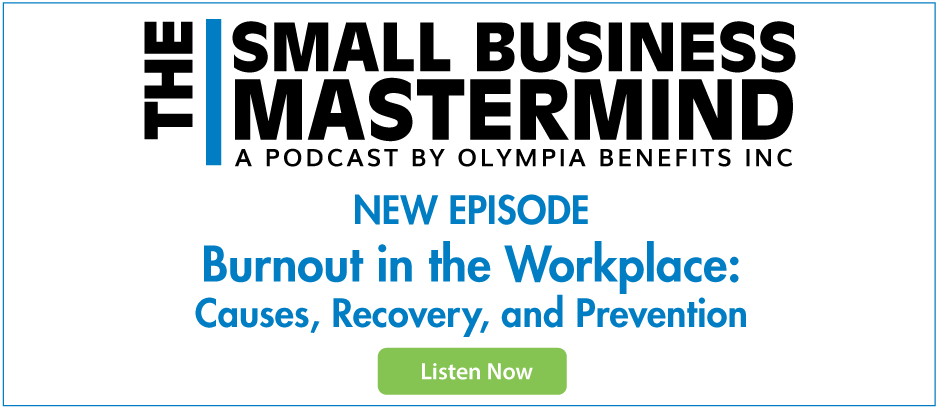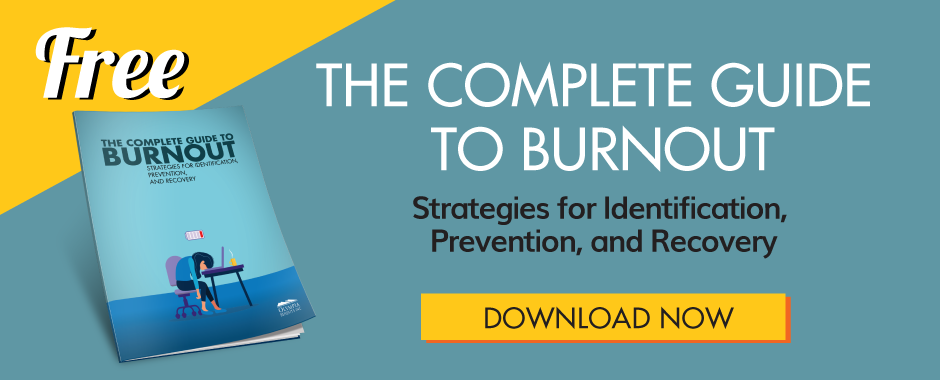What do you do when a star employee suddenly becomes disengaged with their work? Do you assume they've lost interest in their role, or take proactive steps to figure out what's going on? In this article, learn how to spot signs of employee burnout that will help you keep your team happy, healthy, and productive for years to come.
Important note: Burnout is a mental health issue with no one-size-fits-all solution. While the stress management techniques in this article have been shown to have a positive effect on reducing stress, they are for guidance only. Readers experiencing symptoms of burnout should consult the advice of a qualified health professional. Readers are encouraged to consult a health professional before making any major changes in diet or levels of exercise.
You have a star employee - Taylor. For years Taylor has worked hard in their role, helping you build a new high-performing marketing plan from scratch. Taylor has always had a great attitude, gets their work done on time, and rarely takes time off. In fact, it has been over a year since Taylor has taken any vacation time.
Lately, you've been noticing that Taylor is acting differently. They're missing deadlines, promising content that isn't being delivered, using sick days, and no longer come in to your office to say good morning. The other day when you told Taylor they were running behind on a project, they stormed off in a huff.
You're starting to think about replacing Taylor, but, before you do, consider that there may be more to this story than the case of a disgruntled employee. It's possible that Taylor is exhibiting signs of employee burnout.
What Is Employee Burnout?
Burnout is a state of emotional, physical, and mental exhaustion caused by prolonged exposure to excessive stress. In May of 2019 the World Health Organization classified burnout as an "occupational phenomenon," linking it to chronic workplace stress.
When an employee doesn't get a chance to recuperate from a stressful event, like a big project, their "fight or flight" response gets disturbed. In turn, functions that would be considered "non essential" during an emergency situation are altered, like sleep and digestion.
In contrast, functions we would need in an emergency are amplified, like muscular and cardiovascular functions.
At this point, the employee begins experiencing burnout, and left unaddressed they head down the road to overwhelming emotional, physical, and mental exhaustion.
Is Your Employee Showing Signs of Burnout?
In Taylor's case, having worked on a high-stress project (creating a new marketing plan), not taking vacation for over a year, and consistently being a high-achiever point toward susceptibility to burnout. The symptoms Taylor is suddenly exhibiting - poor attitude, bad work ethic, increased absences, and emotional sensitivity - also point to employee burnout.
When an employee's emotional and physical resources are spent, they can present as being in a state of constant exhaustion and hyperstress at the same time. According to Statistics Canada, 27% of Canadian workers claim they experience high to extreme levels of stress on a daily basis. 46% report that they feel some work-related stress daily.
Being passionate about work doesn't help an employee fend off burnout either. In reality, employees who are the most engaged could be those whose workload and performance weigh heaviest on their mind.
Not taking breaks, having unclear goals or job expectations, working within a dysfunctional team, having an excessive workload, getting a lack of recognition, having little support, and working a role that doesn't align with their ambitions can all be contributing factors in employee burnout.
People who have suffered burnout report experiencing: exhaustion (both physically and mentally), disengagement, overwhelming dread, loss of motivation, blunted emotions, depersonalization, a feeling of emptiness, depression, and emotional damage.
Employee burnout signs typically include: decreased productivity and quality of work, sudden disengagement, increased absences, and uncharacteristic complaining.
Why Should Employers Care?
Aside from the well-being of your employee, burned-out employees can incur significant costs for your business. They are more likely to take sick days, fail to complete tasks and projects, and look for work elsewhere. Culturally, a burned-out employee might bring a negative attitude to the workplace which can spill onto those around them.
The direct costs of replacing a burned-out employee can be substantial as is, and this doesn't take into account the indirect costs, like: damage to your culture, damage to your reputation as an employer, delayed or cancelled projects, and so on.
How Can Employers Address Burnout with an Employee?
Companies that check-in with, and value, their employees are better set-up to handle cases of employee burnout. If you can spot employee burnout signs before they go too far, you'll have a much easier time helping the employee get back on track.
First, you want to figure out why they are experiencing burnout. It might be that they are working too many hours, trying to be the "perfect" employee, or are working on tasks they don't feel they have the skills and abilities to complete. It could also be that the expectations being placed on them are unrealistic. Whatever the case may be, you'll want to address their concerns with compassion and help them find solutions.
If the employee is working extra hours because they feel the pressure to be seen as a "hard worker", you could set a goal cutoff time for them to end their day and encourage them to take their breaks. You might also want to revisit and adjust your expectations for their role. They may have more on their plate than you know.
Can Employers Prevent Burnout?
Promoting a healthy work-life balance is key in preventing employee burnout. Here are some suggested ways you can do this:
- Craft a mental health policy that outlines employees' access to counseling services, employee assistance programs, and so on (covered by the company)
- Reach out to employees and ask how they're feeling about their workload
- Encourage friendships in the workplace and plan team-building events
- Give employees an hour or two off of work weekly to volunteer at an outside organization (and pay for their time)
- Encourage employees to take breaks
- Encourage employees to use vacation time
- Set boundaries including work cut-off times and rules around taking work calls at home
- Have creative activities in the break-room for employees to do, like colouring or puzzles
- Get a company membership at a gym nearby
- Offer incentives to employees who quit smoking, or take up other healthy habits
- Keep healthy snacks available at the workplace
- Offer an additional 10 minute break for daily meditation
- Talk about work-life balance with employees
- Take a team-wide social media detox
- Where needed, seek additional guidance from a health professional
What Happened with Taylor?
Being mindful of the stress a job can put on an employee is crucial in keeping your team happy, healthy, and productive. In fact, after encouraging Taylor to take a vacation and revisiting the expectations for their role, they've come back to work refreshed and ready to take on new projects. You won't need to worry about hiring for a long time.
Did you know? Our podcast, The Small Business Mastermind, has an episode about burnout available for listening!

Click the banner below to learn more about burnout and to get your copy of our Stress vs. Burnout infographic.

Sources:
https://atmanco.com/blog/hcm/signs-of-employee-burnout-you-are-missing/
https://www150.statcan.gc.ca/n1/pub/11-627-m/contest/finalists-finalistes_2-eng.htm
https://www.helpguide.org/articles/stress/burnout-prevention-and-recovery.htm
https://www.themuse.com/advice/how-to-tell-if-your-team-is-burnt-outand-what-to-do-about-it
Related Content:
Burnout in the Workplace: Causes, Recovery, and Prevention (Podcast)
15 FAQs About Burnout
What Does Burnout Feel Like?
13 Burnout Recovery Strategies You'll Want to Try
How to Prevent Burnout at Work Like a Pro
6 Things I Learned About Burnout from Interviewing Experts